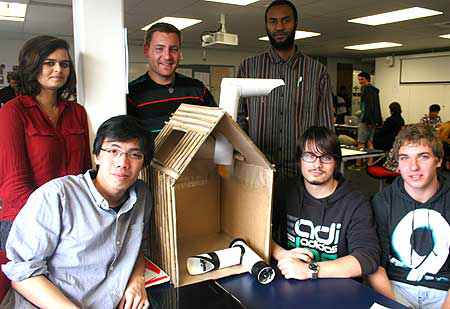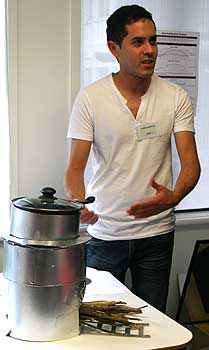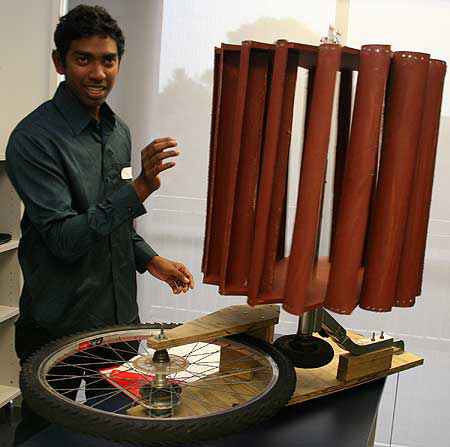Massey engineering students to help Vietnam



Cooking with twigs over a small solar-powered stove may seem a far cry from the daily life of the average engineering student in New Zealand, but the invention could be among several used to improve the livelihood of rural poor living in Vietnam’s Mekong Delta.
The efficient “Anytime Rocket Stove” is the creation of one of 16 teams of engineering students at Massey University’s Albany campus enrolled in a new project-based paper to find sustainable solutions for real world problems.
The programme sees 90 students from the Albany campus and more than 100 at the Manawatu campus taking part in the Engineers Without Borders Challenge. It is run by Engineers Without Borders (EWB) Australia, a chapter of an international organisation that works on grassroots engineering programmes for sustainable development for disadvantaged communities around the world.
The challenge is designed to give first-year students the opportunity to work in teams to develop conceptual designs for projects identified by their community partners. This year, the organisation has joined forces with Habitat for Humanity Vietnam to work with students on developing innovative solutions towards sustainable development of the Anh Minh district within the Kien Giang province on the Mekong Delta at the southern tip of Vietnam.
Other projects designed by students at the School of Engineering and Advanced Technology at Albany include a sustainable roofing and water filtration system using bamboo; a combined sandstone and solar water filter system; a low-cost water pump using a one-way valve; a home ventilation system using PVC piping attached to the roof; and a simple wind-generated home electricity using mini-turbines made from recycled plastic.
Senior lecturer Dr Aruna Shekar, who convenes the paper, says the project-based approach has given students added motivation researching ideas linked to real world scenarios, with the opportunity to make a difference to people’s lives through their work.
“The students get a real buzz from collaborating and learning from each other,” she says. “Most importantly, they get the experience of working in a team with other disciplines. We have students doing mechatronics, product development, food technology, electronics and process chemical engineering all working together. This gives them a sense of what it’s like when they enter the work force.”
She and other engineering lecturers assessed the projects at the end of the semester, selecting the top three, which will be submitted to Engineers Without Borders Australia for final judging.
The top three projects are a solar cooking system; a bamboo roofing and rainwater collection system; and a novel method for cassava leaves processing.
The vision behind the challenge is for the Mekong Delta to be a place where every family has access to safe housing, clean water, better cooking, lighting and washing facilities.
In developing their concepts, students had to fulfil a range of objectives including; responding to a current or projected future need; fitting within the constraints of the environment; demonstrating a clear research-based decision-making process; and showing how they applied appropriate engineering principles while using environmentally friendly materials.
The Mekong Delta region produces around 50 per cent of Vietnam’s rice, but despite its agricultural importance it remains one of the poorest regions in the country. Its future sustainability is vulnerable to environmental changes, such as the effects of population growth, soil acidification and global warming.